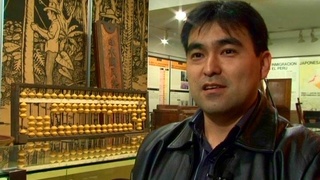Interviews
The Japanese society reacts to Nikkei living in Japan (Japanese)
(Japanese) I think it’s a complicated issue. I mean, if the ones who come into Japan and work are genuinely satisfied with their experience, that’s great. In addition, it would be great if the government can recognize that they must make an effort to create a social condition that works to accommodate these people. Well, looking at the situation right now, I feel like things are kind of mixed up. There are people who welcome them [Zainichi Nikkei (Nikkei who live in Japan)] for their addition into the labor force, but on the other hand, it also seems to cause a lot of other problems. You hear about mayors of cities with a high Nikkei population talking about what a difficult time he or she is having, or that even though he or she has been trying so hard, things aren’t working out as well as they had hoped. There are also instances where the locals are resisting against some cultural changes that have taken place in their neighborhood.
So when I see this really big gap in the speed of progression [in Japanese society], it makes me think about how it must have really taken a long time for the US to adjust to these social changes—to an increased number of immigrants—trying hard to make the right adjustments along the way. You know, with the people that were caught in the middle of it having gone through some really tough times. So when you think about that, it feels like Japan should take a lot more time into solving these issues. When you try to fix things too quickly, you end up creating bigger problems; well, that being an observation coming from an amateur… I haven’t really looked into it yet.
Date: October 7, 2005
Location: California, US
Interviewer: Ann Kaneko
Contributed by: Watase Media Arts Center, Japanese American National Museum









